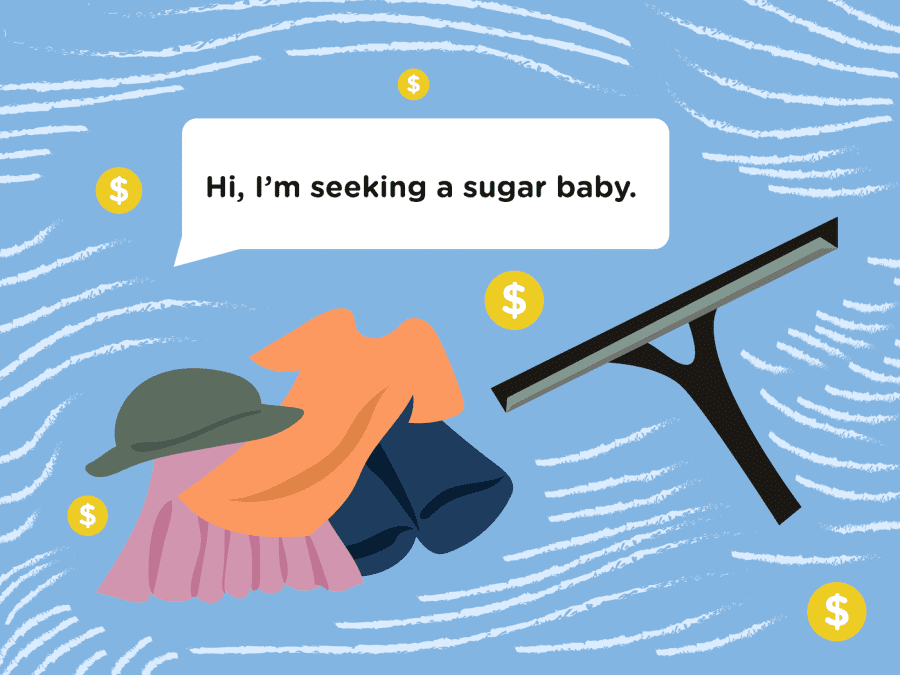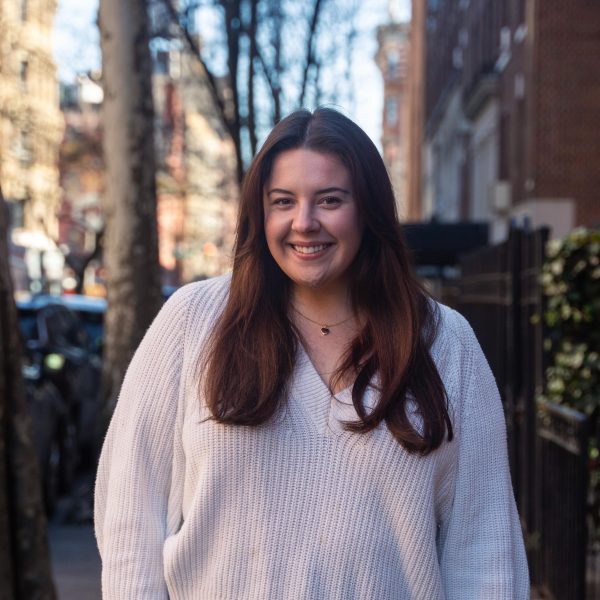“I can work Mondays and Wednesdays from 11 a.m. to 3 p.m., Tuesdays from 10 a.m. to 4 p.m. and Thursdays after 8:30 p.m. Oh, and weekends. Except when I have a cardiology club meeting or mock trial on Saturdays, which is twice a month. Does that work?”
The number of employers ready to say “yes” is unsurprisingly low. One NYU senior found a solution online — on a sugar daddy website, to be exact.
Around a year ago, an NYU senior needed money, and she needed it fast. She relied on funds from her stock market investments to pay her nearly $4,000 rent. When the stock market took a plunge at the end of 2021, she suffered a loss of $10,000. Her family’s business overseas was also taking a hit, so she knew it wasn’t a good time to be asking her parents for money.
Besides a busy and occasionally inconvenient class schedule, international students face another obstacle when it comes to making money. In order to work in the United States, these students need to have a visa sponsored by their employers. For startups and small businesses with limited funds, that’s out of the question.
She googled quick ways to earn money in New York City, which is how she came upon Seeking.com, an online dating site connecting individuals looking for financially based relationships. She chose to remain anonymous due to the stigma of sugaring.
Finding men to go on dates with wasn’t an easy process. She was only interested in pursuing platonic companionship, which required her to weed through the matches. Though several men would say they were only in the market for company, it wasn’t entirely true — some just wanted to use the women on the site as escorts, which often entailed sexual acts.
It took her several weeks, but she finally found a man looking for what she was willing to provide: companionship and conversation.
He’s a former diplomat and single father with a knack for spirituality. He became a regular client — or her mentor, as she calls him — which meant going to dinners, brunches and even getting high together.
“I do think I have a lot to offer in terms of company,” she said. “If they want to talk about art, history, politics — I’m the person to do that.”
It wasn’t always pleasant, and not all of her dates with other men turned into regular outings. There were several occasions when she left in the middle of dinner after a man made unwanted advances, or just never planned a second meeting — a “friendship one-night stand,” as she puts it.
Through her experiences, she has found that some men really aren’t only in it for sugar.
“They have the money — they can pay a therapist if they want,” she said. “But what they’re looking for is a listener and a good friend.”
She has talked to men as young as 25 — others nearly 40 years older — and even a few NYU alumni. Though she did walk away with 10 grand after just three months by not accepting less than $500 per outing, she has benefitted in more ways than just financially. She’s gotten to know a variety of people, and even receive advice from the older men she has met.
“I only told a few really close girlfriends I was doing that, just because of the association and stigma surrounding it,” she said. “I’m afraid that people will label me as a prostitute. But in reality, nothing more than platonic happens.”
The internet is a hub for more money-making opportunities than just a career in sugar babying. Thrifting is a popular hobby for many, and the internet has made it more accessible. It has also turned secondhand clothes into a potential stream of income.
NYU junior Anna Hildebrand is the owner of the Poshmark shop SavedGemsByAnna. Since launching her store in 2016, she has amassed over 70,000 followers and 700 total listings.
“I had too many clothes and I wanted to sell them in a way that I knew they weren’t just going to the trash cans,” Hildebrand said.
When she first started her account, it was just a way for her to make some extra money. Then it turned into an environmental effort.
ThredUP is another online thrifting platform where users can send in boxes of clothes and receive a small portion of the profit when they sell, but only if the item is deemed acceptable. The items that aren’t purchased are bundled up and sent to the dump — unless you want to buy clothes by the pound, like Hildebrand does.
For around $150, she received about 50 pounds of clothing in her “Rescue Box.” For Hildebrand, one man’s trash can be turned into treasure with some needles, thread and OxiClean. Factoring in her time, labor and the price of supplies to clean and revamp the clothing, the cost of each item comes in at around $0.20. This allows her to keep her listing prices low, while keeping her profits high. She hoped to disrupt a market full of sellers buying secondhand clothes for cheap and charging full price.
“You can have something cute and cool while still on a budget,” Hildebrand said. “That’s my main mission.”
While this year she has made around $3,000, in 2020 she brought in almost $9,000. She can’t afford rent on that income alone, but it allows her to bring in supplemental income, despite her busy schedule. In addition to majoring in psychology, she’s double minoring in Spanish and child and adolescent mental health studies. She’s taking maximum credits this semester, and will be doing the same in the spring.
“This is my way of living in New York,” Hildebrand said. “It sustains my way of life, and I feel like it’s making a little bit of a difference.”
After 10 a.m., senior Maximo McDermott is an English major and film studies minor. Before his classes, he’s a window cleaner.
Window cleaning is somewhat of a family business for McDermott. His father is a manager at one of the biggest window cleaning companies in the city — it’s responsible for making the World Trade Center windows sparkle.
In 2014, just one week after the World Trade Center reopened for business, two window cleaners were stranded on their rig. Luckily, both men were safely rescued. McDermott has since met, and has actually worked with them.
He started cleaning windows when he was 19, working full time during his gap year and through the height of the pandemic, as those in the business maintenance industries were considered essential workers. McDermott didn’t have to undergo the full certification needed to work on rigs, since he primarily cleans windows by opening them from the inside or from a small ledge on the exterior known as a setback. He did, however, have to complete the required Occupational Safety and Health Administration training.
He switched to part time once he started college. While many students find themselves cursing when the alarm for an 8 a.m. class goes off, McDermott is up and out of bed by 5 a.m. Most days, he and his crew clean one to two floors of about three different buildings in Midtown or the Financial District. After that, he’s off to class and around $125 wealthier.
Window cleaning probably isn’t the ideal job for those with a fear of heights, but that doesn’t necessarily disqualify anyone from the job. According to McDermott, some window cleaners are afraid of heights, as unbelievable as it may seem. Perhaps the views of the skyline are worth it — the ones from up by the gargoyles on the Chrysler Building definitely are.
“You do get nice views,” McDermott said. “It’s definitely been pretty rough at times, but I don’t call out — even if I’m on two hours of sleep, I go to work.”



























































































































































